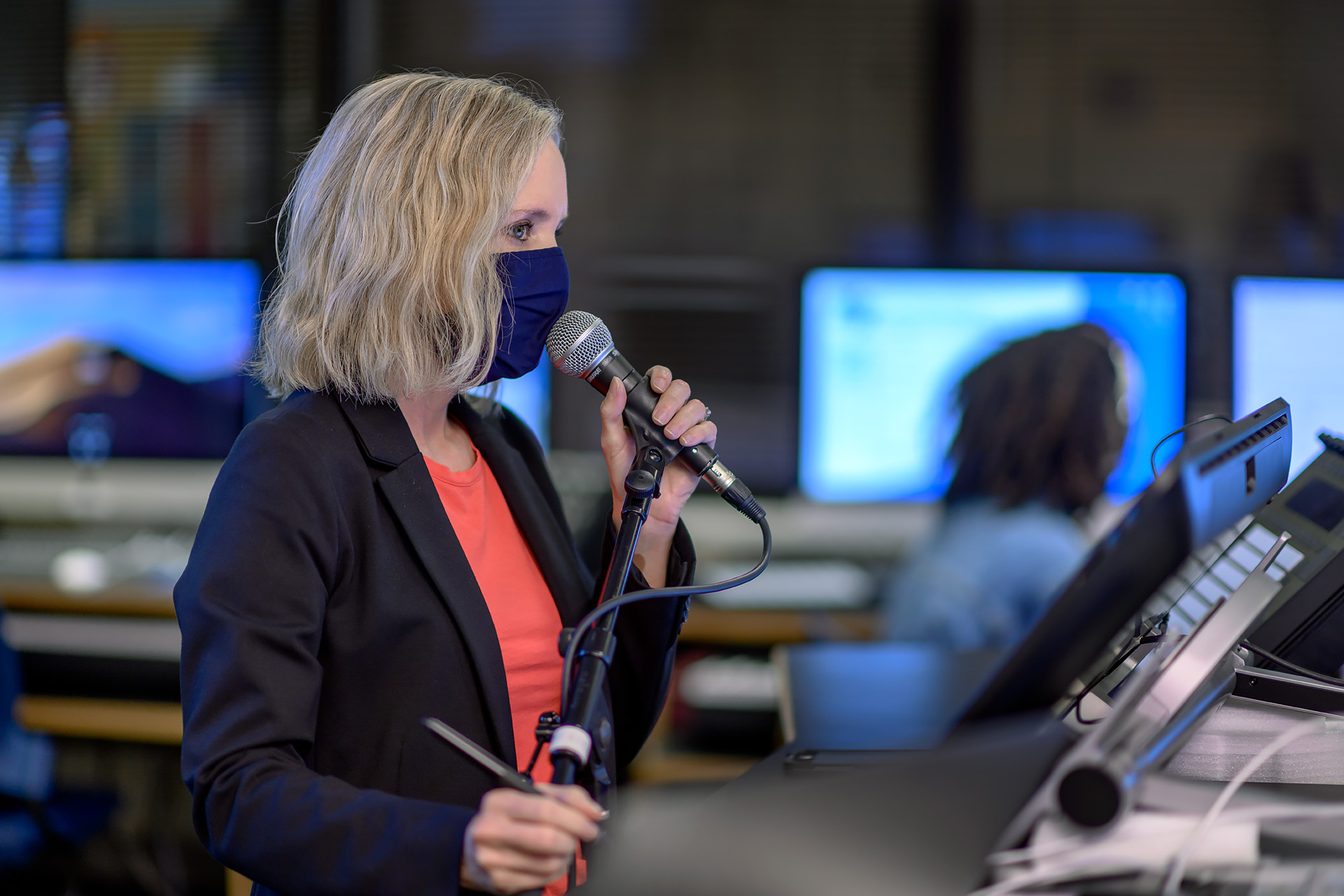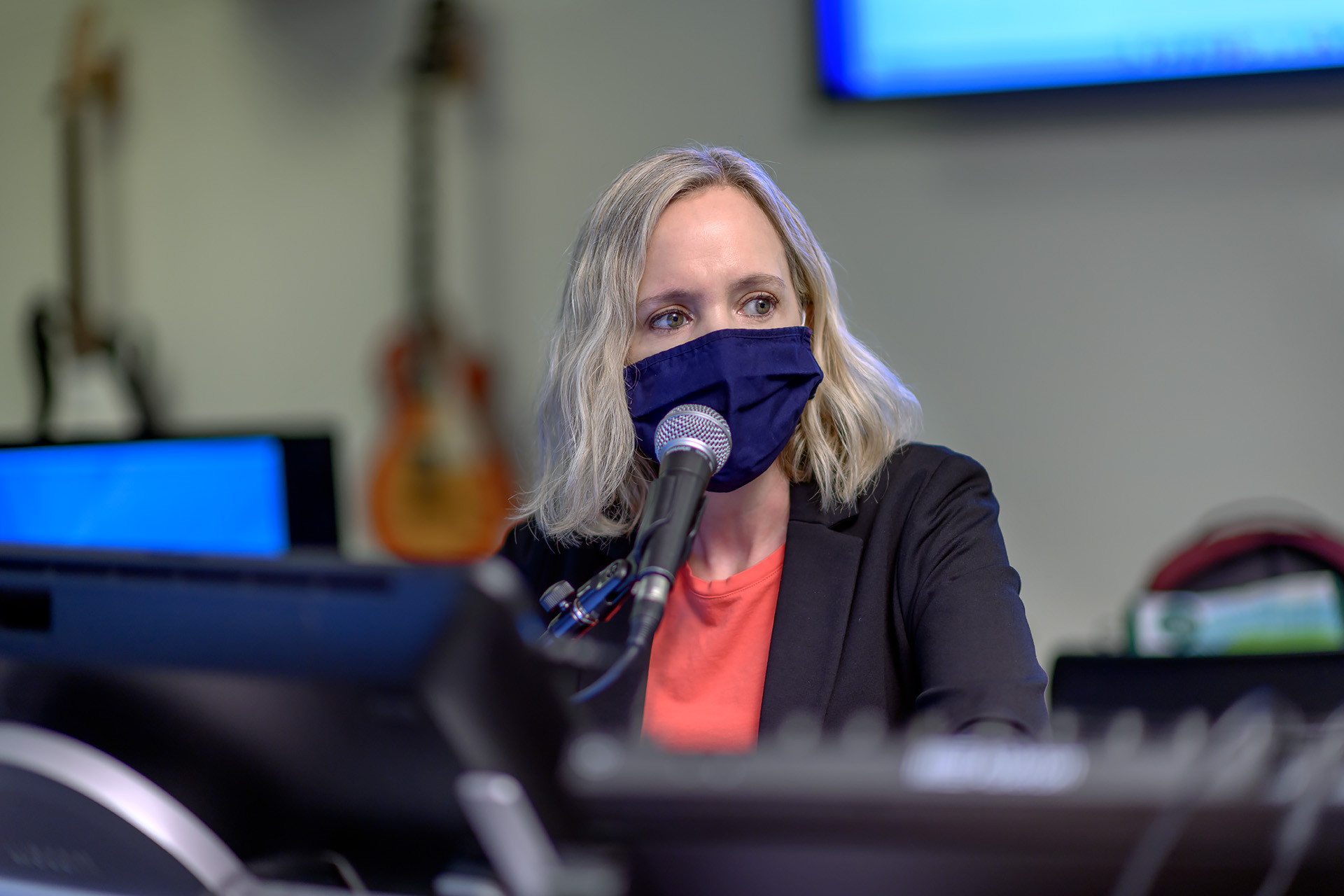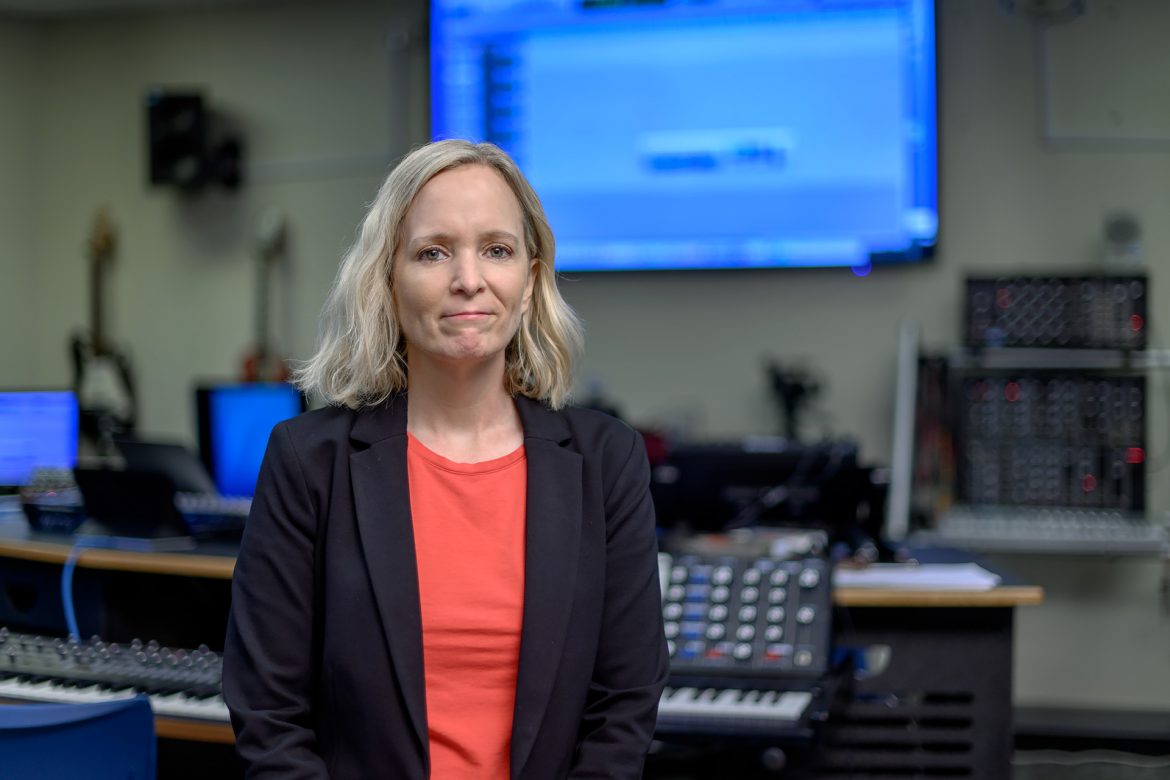By Skip Anderson
Even before the coronavirus outbreak redefined how people function around the world, Misty Jones Simpson was very aware of how people in the audio production profession are vulnerable to becoming isolated . . . depressed even. So much so that she wrote a practical book about ways to stay upbeat in a career that often entails deep concentration at a mixing board or other similarly solitary work.
“I wrote the book before Covid,” Simpson said about Decompressed: How to Find Joy as a Producer in a Flattened World, which published in August 2020. “But now I’m using my own words to keep my spirits up and share that with my students. I’m practicing what I preach.”
Like her colleagues in MTSU’s Department of Recording Industry, as well as teachers across campus and spanning the globe, the pandemic forced the Audio Production assistant professor to teach the remainder of the Spring 2020 semester online exclusively. In her case, the challenge was to adapt a lesson plan that relies almost exclusively upon hands-on experiences with novel electronic musical instruments and expensive hardware.

Misty Jones Simpson teaches in the College of Media and Entertainment. . (Photo: J. Intintoli)
“I was a bit panicked when Covid hit,” Simpson said. “I had to figure out how to make this translate in a meaningful way to my students. How am I going to provide this same experience now without the gear, which is so critical to the disciplines we teach?”
For her Electronic Music and Controllerism class (RIM 4390), Simpson teaches her students how to use “controller hardware” such as the Ableton Push, a 10-by-10-inch techno-looking gizmo with 64 colorfully illuminated square buttons that, to a layperson of a certain age, might resemble a lighted dance floor from the disco era. Those buttons serve as a remote control for a nearby computer that synthesizes drum loops, electronic notes, and other sounds in real time.
“The Ableton Push is not a typical instrument,” said Simpson, who is one of the few female Ableton Certified Trainers in the U.S. “It allows you to perform [electronic music] in real time with your peers.”
In addition to imparting knowledge about subject matter, she prioritized boosting her students’ morale as coursework remained virtual the rest of the Spring 2020 semester.

Misty Jones Simpson teaches several classes in the Recording Industry. (Photo: J. Intintoli)
“Last semester, we had to look at how to use software to replicate virtually a hands-on experience with hardware, and we needed any solution to be free, or close to free, because we didn’t want to cost our students a bunch of money mid-semester,” she said. “By using software, my students learned how to program a virtual ‘performance,’ and learned synthesis by using virtual synthesizers with digital knobs and keys on the computer screen.
“The second challenge was staying positive and high-energy. I knew that my class might have been their second or third Zoom class of the day on top of being stressed about Covid. So, I very much tried to give them a bright and positive experience.”
For the Fall 2020 semester, Simpson is again teaching in person by splitting her 12-person classes into A and B groups, which meet at separate times. Of course, everybody is socially distant and wearing masks.
“I think the students realize that nobody asked for this,” she said. “I think they appreciate seeing that we’re trying to go the extra mile for them. Plus, this gives them another skill set for the real world. So much of music is created and performed on computers. Maybe some of these students will realize that they like to create music using software as opposed to hardware. For some, this opens up new opportunities.”


COMMENTS ARE OFF THIS POST